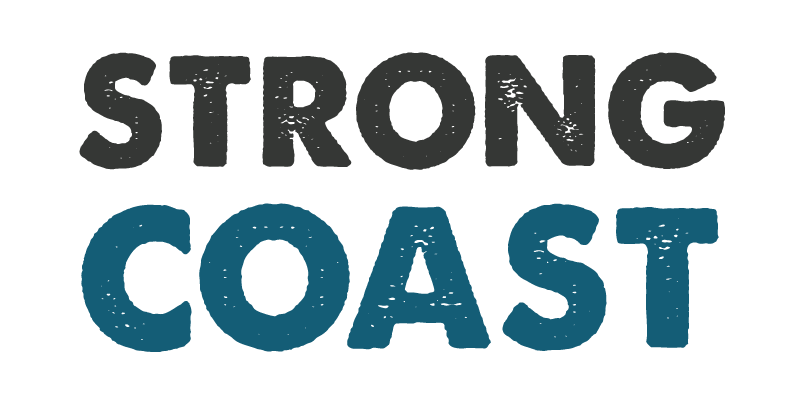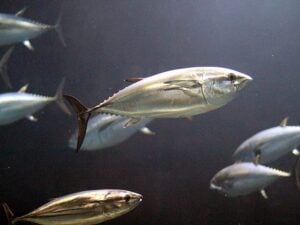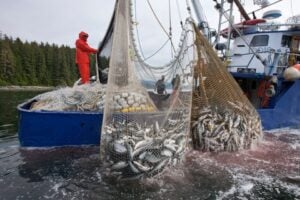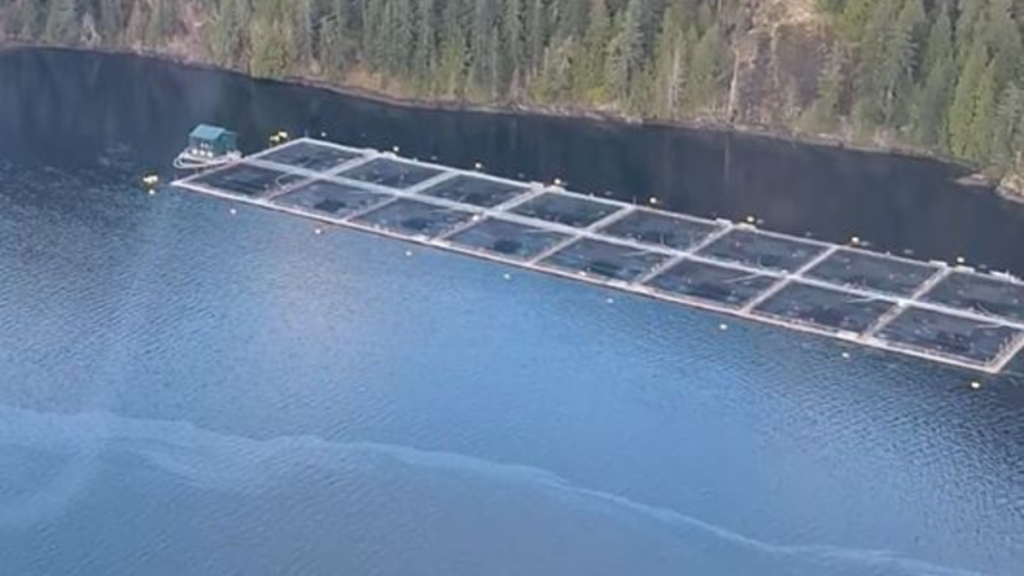
A significant diesel spill of 8,000 litres occurred at Grieg Seafood’s Lutes Creek open-net pen salmon farm near Zeballos on Saturday, marking an incident eight times larger than Cermaq’s 2017 Echo Bay spill. Grieg Seafood, a Norwegian aquaculture giant, attributed the spill to “human error” during fuel transfer operations when a pump was not properly shut off.
The Ehattesaht First Nation issued a clam harvesting alert, citing immediate food security concerns as diesel contamination spread across Zeballos Inlet, reaching Nootka Island, Steamer Point, and Esperanza.
“These spills are all too common on the coast of BC and unacceptable in Ehattesaht territory,” the Ehattesaht chief and council said in a statement on social media. Both the Ehattesaht and Nuchatlaht First Nations have deployed teams to the affected areas to assess the damage and contribute their expertise to response efforts.
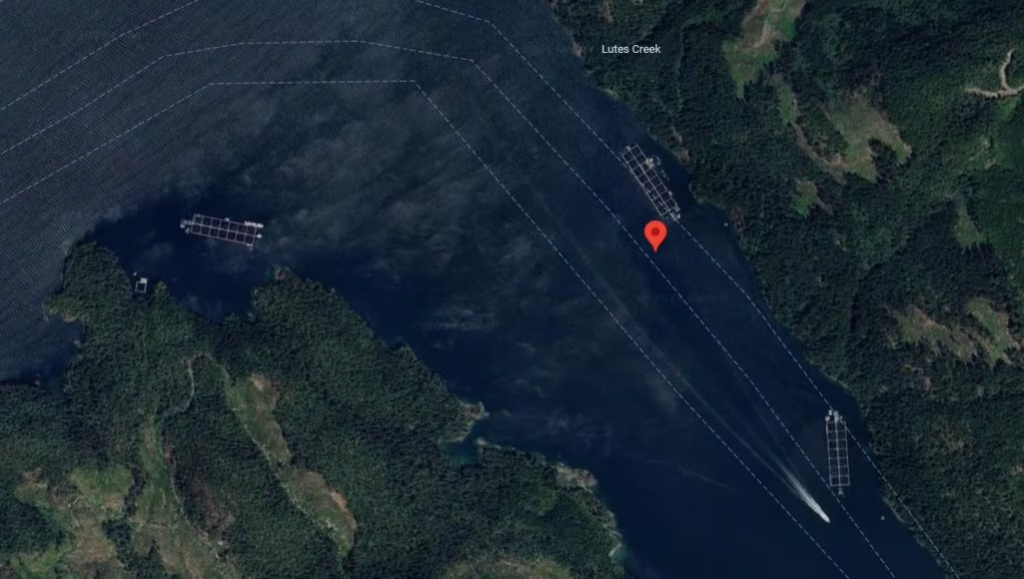
Cleanup efforts face significant hurdles, exacerbated by weekend windstorms, high tides, and cooler temperatures, which slow diesel evaporation and allow it to mix into the environment, complicating removal. Strategic Natural Resource Consultants (SNRC), hired by Grieg, deployed absorbent booms and initiated water and shellfish sampling plans in partnership with the Ehattesaht First Nation to assess the long-term impact.
The Nation has also announced plans to review fuel handling policies and safety systems across regional fuel docks, logging camps, and delivery trucks operating within their territory.
Chief Simon John of the Ehattesaht First Nation voiced sadness over the spill’s impact on his community, which has relied on these waters for food harvesting for thousands of years. “I am sure I will get angry next, but for right now, I am sad that all of this fuel is out there sloshing around our territory, washing up on our beaches. Dealing with this will take a lot of creativity, hard work and some real resources,” he said. The Nation has called for stricter directives for fuel management, including reviewing safety protocols at regional docks, logging camps, and delivery systems.
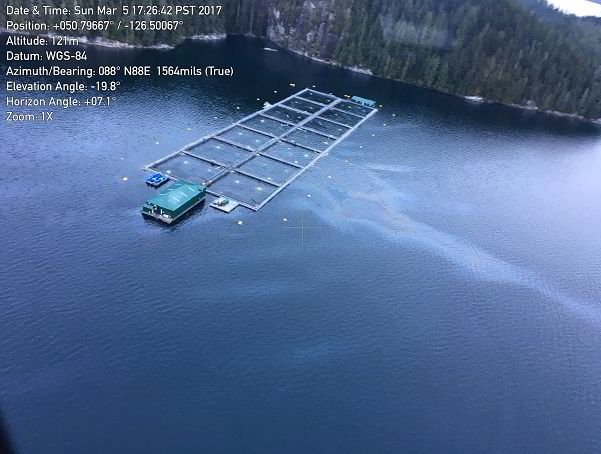
Approximately 40 personnel, including representatives from Grieg Seafood, the provincial government, the coast guard, and Fisheries and Oceans Canada, are involved in the cleanup. However, no recoverable diesel has been retrieved, and the visible sheen continues to spread.
This spill further fuels concerns about open-net pen salmon farming, which has long faced criticism for its environmental impact. In addition to diesel-related pollution, fish farms introduce harmful nutrients like nitrogen and phosphorus into surrounding waters, causing algal blooms that deplete oxygen and endanger marine ecosystems. Globally, diesel-powered fish farming operations also contribute significant carbon emissions, intensifying the environmental cost of aquaculture.
This incident echoes a 2017 spill at Cermaq’s Echo Bay site, which released 1,000 litres of biodiesel into BC waters and led to a $500,000 fine.
Open-net pen salmon farming has also been linked higher mortality rates in wild salmon. The farms are said to be breeding grounds for parasitic salmon lice, which thrive in the crowded conditions of farmed salmon pens. These farms are often located along the migratory paths of wild salmon. As wild salmon pass through, the parasites living on farmed fish can spread to wild populations, significantly increasing infection rates. Estimates suggest that the natural infection rate for wild salmon in British Columbia ranges from zero to three lice, but this changes dramatically near fish farms. A 2020 study found that juvenile sockeye salmon migrating through the Queen Charlotte Strait carried an average of 26 lice each. These parasites feed on the salmon’s skin and flesh, causing open wounds that lead to viral, bacterial, and fungal infections. The added stress from fighting off lice also makes wild salmon more susceptible to predators and less effective at finding food. Due to the severe impact on wild salmon populations, coastal communities across BC have been urging the government to permanently shut down all open-net pen fish farms.
The Canadian Coast Guard has issued an advisory urging mariners to avoid the spill area as cleanup efforts continue.
For more on this story, check out this article on West Coast Now.
